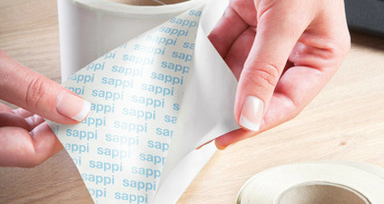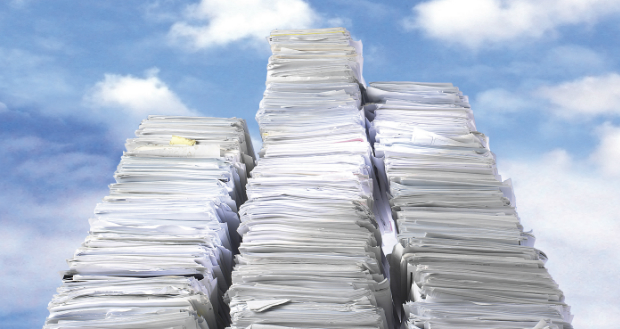
Paper prices from the three big merchants are set to go up as the Australian dollar falls to its lowest value in four years. Spicers, KW Doggett and BJ Ball say prices have been stable since the last rise in March, but the currency’s new low of 82c has forced up prices. Spicers is the first to pass on the hike, with a 6-9 per cent rise effective on Monday, December 15. The Paperlinx subsidiary says print is in a ‘difficult business environment’ undergoing structural change.

Paper prices: stacking up
A letter to its customers says, “Spicers has been able to offset the threats to the sustainability of our models caused by the fundamental decline in our markets. “Unfortunately cost pressures continue unabated, and recently have been exacerbated by marked depreciation of the Australian Dollar against many of the major currencies in which we trade with our international suppliers.” Managing director Andy Preece says prices could go down again, depending on the strength of the Australian dollar. KW Doggett and BJ Ball are both holding off until February saying they are under intense price pressure and can only afford to keep absorbing the decreasing margins until then. Doggett managing director Simon Doggett says prices will rise by up to eight per cent on February 2, with the most popular commercial grades being hit with the full hike because its supply out of Asia is the ‘most price sensitive’ to currency changes. He says ‘only a couple per cent’ of the 10.5 per cent March price hike was actually realised because the dollar moved from 90c to 95c soon after. Doggett says the dollar has fallen 23c from its high of $1.05 early last year, so the price rises across the industry only represent a fraction of the actual hits to margins. “It is never easy for the industry to absorb cost rises, but all imports are being hit by the currency, not just paper,” he says. BJ Ball says it has yet to fix a date and will not decide how much prices will change until January. The last round of price hikes in March saw BJ Ball customers pay eight per cent more across the board, KW Doggett up to 10.5 per cent, and Spicers 8-10 per cent. The Australian dollar has seen sharp declines recently, falling from parity last May to its lowest levels since June 2010 this month, with further falls predicted as demand for commodities weakens and China’s economic growth slows.
Comment below to have your say on this story.
If you have a news story or tip-off, get in touch at editorial@sprinter.com.au.
Sign up to the Sprinter newsletter


